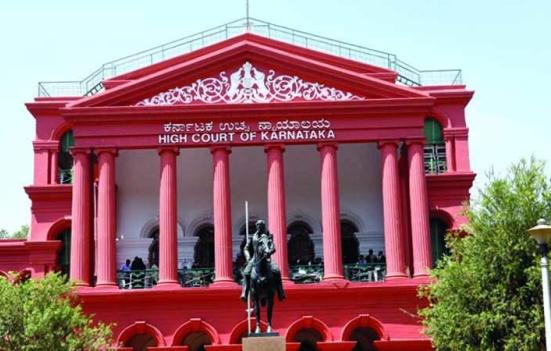By LI NETWORK-
A 14 year old boy was hit by the accused on head with the help of an axe. The accused had also used to filthy words post attacking and were taunting him by saying that you belong to minority class.
When the case reached the Karnataka High Court, the accused claimed that the representative or the family members of the victim cannot be a party in the case and their rights limit only till passing of information related to the case. The accused had came up with this point under section 15A(3) of the SC/ST act.
The section 15A(3) of the SC/ST reads as,
“A victim or his dependent shall have the right to reasonable, accurate, and timely notice of any Court proceeding including any bail proceeding and the Special Public Prosecutor or the State Government shall inform the victim about any proceedings under this Act”
On this, the Karnataka High Court bench of Justice held that,
“Therefore, the definition “victim” as enumerated in the Act is wide enough, which include any individuals who falls within the definition of the SC/ST Act who has suffered or experienced physically, mentally, psychologically, emotionally or monetary harm or suffered harm to his or her property. If a person sustains injuries arising out of crime then, he himself, his parents, family members are also to be considered as victim as per the above definition.”
Therefore, the mother was also a victim as her son had sustained injuries and also she being an informant, she was a party in the case.
Adding to this, the court also held that,
“Therefore, unless the victim or dependent as enumerated in Section 2(ec) of the SC/ST Act is made a party in the proceedings in the case pending before any court, it is not possible for the court to hear whatever submission to be put forth by the victim or dependents in the proceedings before the court. Therefore, under these circumstances, making the victim or dependent as party in the proceedings pending before any court is necessary and mandatory.”
The court had held this decision as it is held in section 15A(5) of the SC/ST act. The reads as,
“A victim or his dependent shall be entitled to be heard at any proceeding under this Act in respect of bail, discharge, release, parole, conviction or sentence of an accused or any connected proceedings or arguments and file written submission on conviction, acquittal or sentencing.”
Another issue raised was whether the victim can avail free legal aid. Free legal aid not only involves legal counselling, but also providing an advocate to the member of the SC and ST tribes in any cases pending before the court.
On this point the further stated that victim or dependent under SC/ST act they are empowered to take assistance from Non Government Organisation, social workers or advocates.
Karnataka High Court observations, issued certain guidelines-
- A right is conferred on the victim or his/her dependents to participate in the proceedings initiated under the Scheduled Castes and the Scheduled Tribes (Prevention of Atrocities) Act, 1989 as enumerated in Section 15-A, as discussed above.
- Therefore, the first informant/complainant/victim or dependents shall be made as a party in the proceedings and issue necessary notice to the victim or dependents/first informant/complainant/victim or dependents and to hear them in any proceedings as envisaged under Sub-section (5) of Section 15-A of the SC/ST Act.
- The Special Courts trying with the offence/s under the Scheduled Castes and the Scheduled Tribes (Prevention of Atrocities) Act, 1989 shall direct the District Legal Services Authority to provide an advocate on behalf of the victim or his/her dependents/ first informant/complainant from the Panel Advocates of District Legal Services Authority.

